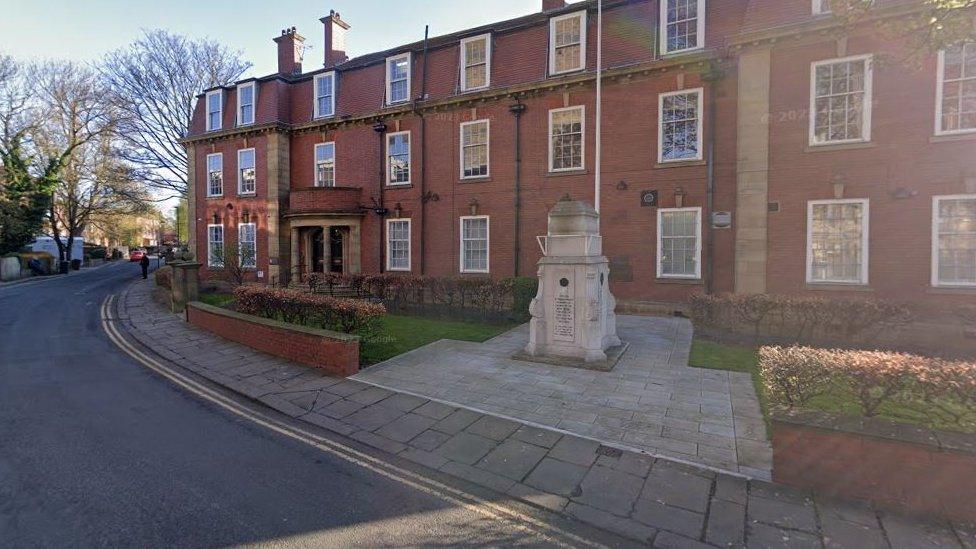West Yorkshire Police's use of force still a concern - inspectors
- Published

West Yorkshire Police must complete an action plan for improvements to its custody services
West Yorkshire Police "can't assure itself or the public" its use of force in custody "is necessary, justified and proportionate", inspectors have said.
His Majesty's Inspectorate of Constabulary and Fire & Rescue Services (HMICFRS) said this issue continued "to be a cause for concern".
The HMICFRS and Care Quality Commission inspection took place in September.
West Yorkshire Police said it was working to "tighten up processes" and were "confident" of improvement.
Inspectors reviewed custody records and CCTV footage of 18 incidents and found the use of force in some cases "wasn't proportionate to the risks posed and incidents weren't always managed well".
They said custody officers "often" became involved in incidents against professional guidance and such incidents were not always recorded accurately and in some cases not recorded at all.
"The force can't assure itself or the public that when force or restraint is used in custody, it is necessary, justified and proportionate," inspectors concluded.
'Safety risk'
Inspectors noted that progress had been made in improving custody services in some areas.
However, the governance and oversight of the use of force in custody "isn't good enough" and "continues to be a cause of concern" following its last inspection in 2016.
The use of PAVA incapacitant spray was also found to be higher within West Yorkshire Police than in other forces.
Detaining people with the synthetic pepper spray could have been avoided "if other control methods or tactics were used effectively," inspectors said.
There was no CCTV in some cells, with the quality of CCTV footage in others described as "poor".
"This limits the force's ability to review CCTV and is a potential safety risk," inspectors said.
Custody records were also described as "poor" and some key information was not recorded.
Inspectors said the force did not collect data on how many detainees required a mental health assessment, or how long it took to arrange assessments or move detainees to a place of safety.
"This makes it harder for the force to make sure it isn't holding vulnerable detainees in custody for a long time," they said.
Additionally, detainees were not always informed of their rights and the complaints process was not "well-promoted".
Michelle Skeer, from HMICFRS, said the force would have three months to submit an action plan to address the concerns.
She said a second inspection would take place within 12 months.
West Yorkshire Police's Assistant Chief Constable Pat Twiggs said: "We accept that we need to ensure the thorough and accurate recording of information and utilising this to inform the right interventions and outcomes across criminal justice."
He added that the force was "committed to working with our custody teams to tighten up processes around the recording of information, particularly where we have used force, and we are confident we can improve in these areas".
"We are open to external scrutiny around our custody processes and have a good working relationship with our county's Independent Custody Visitors," he said.
Alison Lowe, Deputy Mayor for Policing and Crime, said: "We will continue to hold the force to account, and expect performance to improve as a result.
"To aid progress, the mayor and I are setting up a new dedicated Independent Custody Detention Scrutiny Panel which will also provide regular oversight of the response to the recommendations and the wider performance within custody."

Follow BBC Yorkshire on Facebook, external, X (formerly Twitter), external and Instagram, external. Send your story ideas to yorkslincs.news@bbc.co.uk, external.